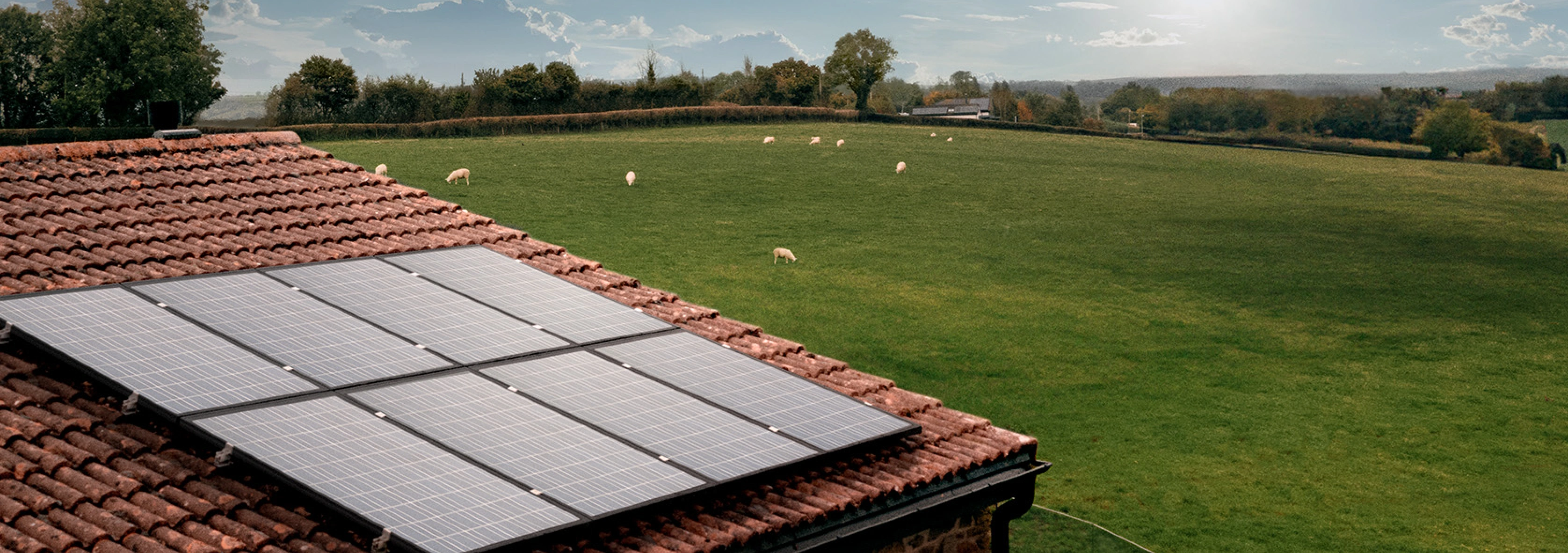Published by Martin McGinlay, Commercial Operations Manager for Solar | Hive
Last updated: 21st January 2026
To apply for a grant, you need to meet certain criteria. This usually includes things like where you live, your income and whether you receive benefits. But if you’re not eligible, there are some great offers and tariffs that can help you save even more on your energy bills once your panels are up and running.
This guide explains what solar panel funding could be available, how it all works and what you need to be eligible.
What solar panel grants and funding are available in the UK?
In January 2026, the government announced the Warm Homes Plan, a £15bn investment to help millions of families to make energy-saving upgrades - like installing solar panels and home batteries. Low-income households could get them installed for free, while others can apply for zero or low interest loans to help cover the cost.
More details about when these incentives will be available and how to apply are expected later in the year. However, there are other grants that are already available, like the Home Upgrade Grant (HUG).
Home Upgrade Grant (HUG)
HUG started in 2023 and aims to provide local authorities with £700 million to improve the energy efficiency of homes in their area.
Currently HUG operates in 45 local authorities in England only. You can find out if your local area is covered here.
Grants can be used for various energy efficient and low carbon heating improvements which can include solar panels, insulation and doors and windows. Your local council will decide the funding you may be eligible for and how it can be used.
To be eligible for HUG you must:
- Have a combined household income of less than £39,000 a year.
- Live off the gas grid.
- Live in a home with an Energy Performance Certificate (EPC) rating between D and G.
- Live in England.
- Receive government benefits.
It’s worth knowing that you can have an interview with your local authority to see if you qualify based on other factors, even if your household earns more than £39,000 per year.
Smart Export Guarantee (SEG)
While SEG isn’t a grant, it’s a great way to earn money from your solar panels. The scheme requires energy suppliers to pay you for any surplus solar energy that you send back to the grid.
Unlike some of the solar electricity grants that we’ve covered, SEG currently has no end date. Plus, by selling your excess energy back to the grid, you’ll balance the supply and demand of electricity – reducing the need for fossil fuels.
It’s worth shopping around to find the best SEG tariff, because different suppliers offer different rates. You can sell your surplus solar to our friends at British Gas for 15.1p per kWh if you’re one of their electricity customers, and 3.02p per kWh if you’re not.
To get a SEG tariff for your solar panels your system must be small scale (up to a capacity of 5MW). You also need to have:
- Relevant documentation for your installation.
- A smart meter installed that records export readings every 30 minutes.
- 0% VAT on solar panels and batteries
The government cut VAT on solar panels in April 2022 and extended this to include batteries in February 2024. The initiative aims to help more people use renewable energy.
According to the government, the average two to three-bedroom house installing a 4 kW solar system and battery will save more than £2,850. The scheme isn’t limited to just solar panels, it covers other energy-saving materials such as insulation and heat pumps. In March 2027, the VAT-free period will end and it will return to 5%.
To be eligible for the 0% VAT rate you must:
- Buy both the installation and solar products together.
- Install mainly energy-saving materials.
Handily, your solar panel installer will automatically apply the 0% VAT rate to all the energy-saving materials that qualify. So you don’t have to worry about filling out a separate application.
Scotland, Wales and Northern Ireland
There are a number of solar panel grants available for UK households outside of England.
Home Energy Scotland Grant and Loan
Offers up to £6,000 with £1,250 as a grant and an optional £4,750 as a loan. This scheme is no longer accepting solar panel referrals but it’s still open for other home improvements, like heat pumps and insulation.
Public Sector Decarbonisation Scheme
Aims to cut carbon emissions of public sector buildings by 75% by 2037. Its fourth phase was launched in February 2024. If you want solar panels installed on a commercial property you could be eligible. Funding depends on regional availability.
Nest Warm Home Programme
Welsh government initiative to improve the energy efficiency of homes in Wales. Nest provides all households in Wales with free energy advice.
Some homes could also be eligible for free home energy improvements, such as solar panels or a heat pump. To qualify, you must receive means-tested benefits or have a health condition that could get worse because of the cold.
Save more with Hive Solar
We hope this guide has helped you get to grips with the different solar panel grants and funding options. If you choose Hive Solar, your energy consumption will be greener, cheaper and hassle-free. You’ll slash your carbon footprint and could make big savings on your electricity bills. Plus, you can easily keep tabs on your surplus solar and SEG tariff earnings with the Hive app.
